Hey, a blog post! Neat! In 2018, I have not written nearly as much as I would’ve liked. Most of my time has been sucked up by my startup, Eventbot. Although I found some time to read and squeeze in a few games (upcoming posts), my energy for additional technical writing was pretty much sapped. I’m not super optimistic that will change this year, but we’ll see. Anyways, on to the books!
Fiction
 Artemis by Andy Weir
Artemis by Andy Weir
The author of The Martian is back with another fun space adventure, this time on a moon base. Artemis has a lot of fascinating science factoids that The Martian has, and I thought the story was gripping, particularly through the end. I had a tough time visualizing some of the things described to me, but all in all this was a fun read.
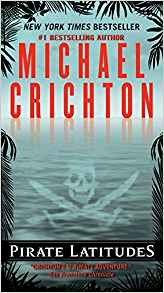 Pirate Latitudes by Michael Crichton
Pirate Latitudes by Michael Crichton
I read most of Crichton’s books as a teenager. I was a huge fan, but it’s been many years since I’ve read anything by him. There have been a few books that have been released posthumously, one of which was Pirate Latitudes. It starts a bit slow, but really picks up. It feels like Oceans 11 in the 1600s with Pirates, then goes in several different directions. Really fun book.
 Altered Carbon by Richard K Morgan
Altered Carbon by Richard K Morgan
Set in a far future where people can transport their consciousness to different bodies (sleeves), we follow the exploits of Takeshi Kovacs who was hired to solve a murder mystery of sorts. The physics of how the world works is fascinating, and the book can be pretty violent and graphic. Although the pacing is excellent, at times it’s a bit hard to follow; there are some characters or references made that I didn’t recall. It could just be me, but this made it frustrating to read at times.
 Next by Michael Crichton
Next by Michael Crichton
Continuing on my mini-Crichton rampage, Next was Crichton’s final book before he died. I think I read it along time ago, but I didn’t remember it well. Anyways, it’s a typical Crichton book: cool science, well-written, some interesting plot twists, and completely forgettable characters. Some of the science seems a tad dated, or well-accepted at this point. Very easy to read, as is all of his books. Not my favorite, but a fun read.
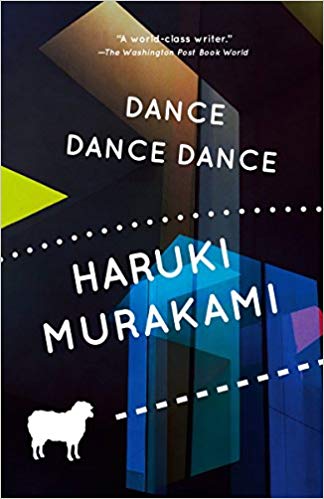 Dance Dance Dance by Haruki Murakami
Dance Dance Dance by Haruki Murakami
This was my first Murakami book! Very enjoyable, and easy to read. It felt like a fun, eclectic mix of Stranger Things and Dirk Gently’s Holistic Detective Agency. This was translated from Japanese, but I thought the prose flowed very well. I thought there were a couple strange word choices here and there, but it didn’t derail my enjoyment. I’m sure I’ll be reading another Murakami story soon.
Non-fiction
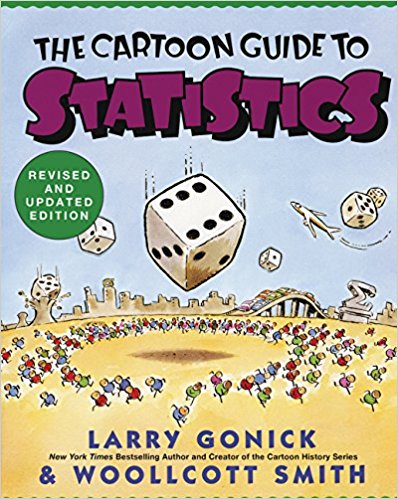 The Cartoon Guide to Statistics by Larry Gonick & Woollcott Smith
The Cartoon Guide to Statistics by Larry Gonick & Woollcott Smith
I seem to try to learn a little more about statistics every year, and this book is my latest attempt. There’s lots of good examples that build on the lessons of previous chapters. Admittedly, at times it went a little too fast for me, and I had to repeatedly go back and refresh myself. But overall, this was pretty good. I’m happy to have a book I can revisit to refresh myself on statistics concepts.
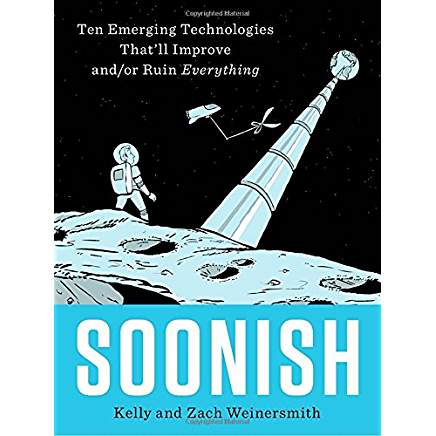 Soonish by Kelly Weinersmith and Zach Weinersmith
Soonish by Kelly Weinersmith and Zach Weinersmith
This is probably the most fun non-fiction book I’ve read in years. The authors go through several upcoming technologies and document the possibilities for world improvement/doom and how far away they might be. One of the authors is the creator of the excellent Saturday Morning Breakfast Cereal comic, and his humor (and comics) shines throughout the book.
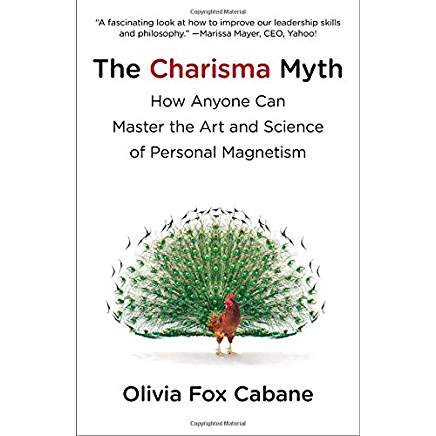 Charisma Myth by Olivia Fox Cabane
Charisma Myth by Olivia Fox Cabane
This book’s primary argument is in the subtitle, “anyone can master the art and science of personal magnetism”. I agree with the premise; the book has some interesting points and gave several suggestions on how to improve charisma. A lot of it came down to listening intently, expressing sincere empathy, and maintaining positive body language. So, while I think there were some valid suggestions, I didn’t love this book. It seemed too long, felt repetitive, and had a weird pseudo-sciencey self-help vibe. It’s worth a skim or a quick look at the summaries though.
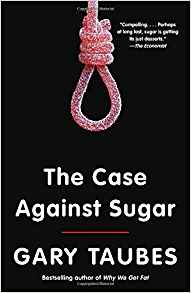 The Case Against Sugar by Gary Taubes
The Case Against Sugar by Gary Taubes
This is kind of a lengthy history on sugar, it’s introduction into “Western diets” and the work that the sugar industry has done to persuade the public that sugar is harmless. It also goes into detail about the real harm that extensive sugar consumption leads to. The book made it’s point, but overall, I thought it was a bit slow; it focused more on the politics, and less on the biology and science. The most interesting part was the correlation between sugar consumption and a variety of diseases including gout, cancer, and Alzheimers. Side note: I wrote about reducing my carbohydrate intake in an earlier post.
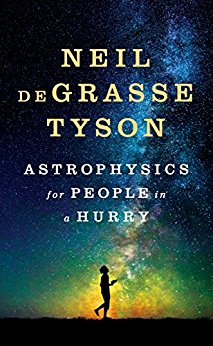 Astrophysics for People in a Hurry by Neil deGrasse Tyson
Astrophysics for People in a Hurry by Neil deGrasse Tyson
Very fun, very informative read. Pretty light as far as non-fiction goes. I really enjoyed the sections on Dark Matter and Dark Energy.
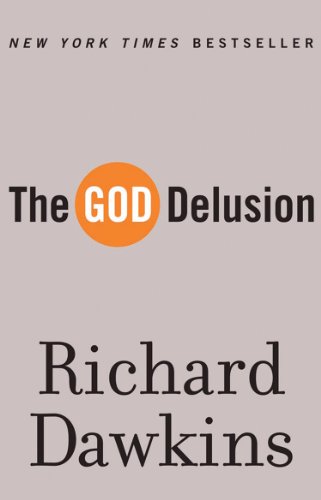 The God Delusion by Richard Dawkins
The God Delusion by Richard Dawkins
I’ve been curious about this book for awhile. Dawkins makes a lot of interesting points about the Bible, particularly some history and contradictions. It’s a bit slow, but I think I read too many nonfiction books in a row. I enjoyed his discussions on evolution and memetics.